Artist Life - Art & Dyslexia
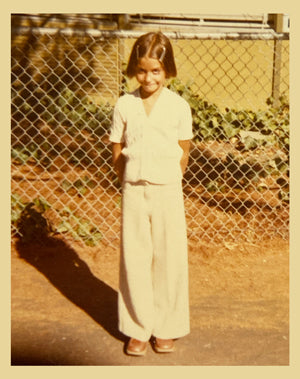
Lisa in kindergarten school.
Art & Dyslexia
Most recently, learning about my dyslexia has been both life changing and surprisingly comforting to me. Creating with my hands has led me on an interesting journey of uncovering my dyslexia and helped clarify why my childhood academics were such a struggle.
This month I am sharing with readers my latest newfound appreciation of self-discovery and details about how it unexpectedly unfolded. Here is my story…
The Podcast That Helped Me Uncover Dyslexia
It all started to unfold in November 2021. I was driving in my car listening to the podcast, For the Love of Jewelers: A Jewelry Journal Podcast hosted by Courtney Gray. She was interviewing a talented contemporary jewelry sculptor and Saul Bell award winner, Holly Gage.
During the interview Holly talked about her artistic journey and discovering her dyslexia later in life. I found Holly’s story enlightening. I appreciated her honesty about her academic childhood struggles. While Holly’s conversation highlighted her spatial strengths and strong problem solving skills, something struck a chord with me. Her story was all too relatable.
During the interview she mentioned a book I had never heard of, “The Dyslexic Advantage”. The book is written by two doctors, Brock and Fernette Eide, who specialize in neurology and education. The book discusses the authors’ published research studies, characteristics, and real stories regarding dyslexia. My instinct said to get the book.
That evening I downloaded the book on my Kindle. It immediately caught my attention. I couldn’t put the book down. It was shocking what I started to uncover. The personal stories about people struggling with reading, spelling, writing, memory, and phonics as kids was astounding.
I started having flashbacks of being that embarrassed kid struggling in school. The book detailed stories about people’s difficulties with articulating what they want to say with words, but often struggle — I live with this daily. This too was all so relatable. I said to myself, “now this all makes sense. I am dyslexic.” I suspected as an adult that I might be dyslexic, but I thought reading backwards was a prerequisite — which it is not.
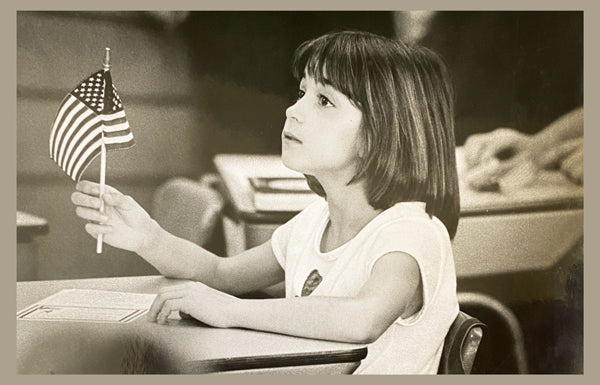
I Never Felt Smart Enough
As a child, academics were extremely difficult. I hated classroom settings. My many childhood struggles included pronunciation, memory, writing, reading, and of course focusing. In school I dreaded being called upon in class to answer questions and feared reading out loud. My academic shortcomings created tremendous amounts of endless childhood anxieties. I never felt smart enough.
I quietly labeled myself as the “stupid kid” in class and far too many of my classroom experiences echoed that sentiment.
I remember many uncomfortable elementary school moments. Every Tuesday in class I would nervously wait for the bright blue metal door to swing open, followed by a teacher’s aid calling my name. Immediately my heart would start pounding. I would quickly get up from my desk. Every step I took towards the door delivered the walk of shame.
I thought, “here we go again, the stupid kid going to the learning center.” I constantly worried about what my peers were thinking when I had to attend these special classes. Another uncomfortable childhood school experience that haunts me: telling my classmates I am repeating kindergarten. It was embarrassing explaining to kids and adults I have to stay back in kindergarten. That experience certainly did not help boost my self confidence. It only contributed to my severe sensitivity with academics.
I learned during early childhood that incorporating humor with difficult situations was a healthy coping mechanism. Humor helped my confidence building and it simply felt good to laugh when I was stressed. I enjoyed making others laugh and it comforted me during tough times.
I was determined to get through my challenges and tried to focus on the things I really enjoyed. My joyful childhood memories included my social life, making delicious nachos, dreaming about inventions, storytelling, jewelry making, listening to music, my art and photography classes.
As I grew into my teenage years, the more accepting I became with my academic challenges and found ways to work around it. Not being like other kids was the reality whether I liked it or not.
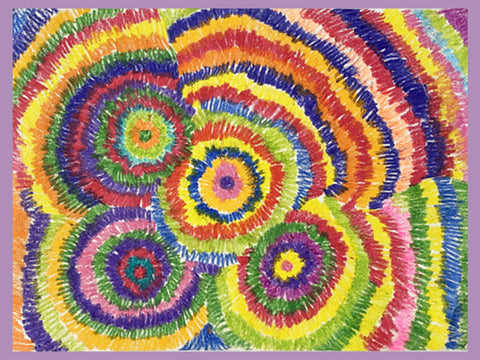
College Is Tough
Regardless of my learning differences, I went on to college. I was determined to get a bachelor’s degree. My first two college years I attended Diablo Valley College in Concord, California. Although initially I wanted to go away to a state college, I did not think it could be a reality.
I picked a junior college instead to avoid taking the SAT test. Timed exams were difficult for me. I usually scored poorly and never had adequate time to finish. That created too much anxiety, resulting in constant distractions. My learning differences also included noise sensitivity which meant I was easily distracted in testing environments.
College consisted of both negative and positive experiences. My first two uncomfortable college experiences started with my English and math classes. I remember working really hard on an English paper only to find out it was poorly written. After my English professor told me my writing skills were horrible I questioned staying in college.
A little voice inside said “don’t give up, just keep at it”. Therefore, I continued working on improving my studies. Another reminder about not feeling smart enough happened after taking a college math exam. Being nervous about taking the test was an understatement. I was scared of failing. I had to pass this test in order to graduate college. That put a lot of pressure on me.
I studied really hard and tried to remain positive about my test results. My main concern: finishing the exam on time. Sure enough, when the test day came I barely finished in time. As I waited nervously in the upcoming weeks for my test results I prayed for a miracle. When I finally received my test results I was crushed. I had failed miserably. My next plan: quit college.

Before giving up on my college degree, instinct said “something doesn’t feel right. I know I had several of the math answers correct.” After a few days of misery, I decided to call the testing office. A patient lady answered the phone. After telling her I was preparing to leave college due to my failed test she wanted to help.
She put me on hold to find my test. I nervously awaited. With little confidence, I prayed for another miracle. After 5 minutes on hold she found my test. Then she started looking it over for the next 10 minutes. She noticed something off and believed to have found the problem. Ironically, I had written in the wrong test ID — choices were A or B.
Then she delivered the most unbelievable news I could have ever imagined. A miracle: I passed the test. A bonus: my test score was average. I was so relieved and over the moon. I learned a huge lesson that day: follow your gut, and persistence pays off in life. I happily remained in college.
There were a few college courses that delivered great joy and enriched my academic studies. My favorite college subjects were the history of art and architecture. My history professor was incredible. His courses captivated my attention. The professor’s teaching style allowed me to easily comprehend and retain the subject matter. He used visual aides and detailed storytelling teaching techniques.
His courses kept me on the edge of my seat, wanting to learn more. Surprisingly the class tests were not difficult for me and I passed exams with flying colors. I continued taking more of his classes, scoring A’s in all of the courses. I was thrilled with my grades.
At the time I was baffled why I did so well in his classes and struggled in most other courses. Today, it all makes sense now. I thrive on visual learning and storytelling. I retain information using episodic memories. I struggle with semantic memory, which is how the majority of my teachers taught. Therefore, most of my schooling environments were not ideal for me to thrive.
I continued on my college path, but could not wait to graduate. My last three years of college I finally transferred to a state college. I studied at California State University, East Bay. I continued struggling with some of my college courses. Statistics felt impossible and I still struggled with writing. Reading for my college courses took me twice as long as my peers, but I just pushed along.
Finally graduation day came. I couldn’t leave the campus fast enough. I didn’t even attend my graduation ceremony. I happily received my Bachelor’s in Sociology from a distance. I was grateful to finally be done with college and thrilled to finally be out of classrooms.

Life After College
Working while attending college made my life easier after graduation. I didn’t have to look for a job. I already had one and years of experience. That relieved a lot of stress. I simply added more work hours to my plate and I was set.
I enjoyed working jobs, appreciated the routine, thrived on challenges and meeting people. Working a job was much easier than being in school. Jobs provided ways for me to use my creativity and I enjoyed making money. Another benefit: I no longer grappled with graded papers or timed tests.
Although school was tough as a child I am grateful for those challenging times. Later in life those challenges turned into advantages. It taught me how to be over prepared, well organized and a hard worker. In my jobs I could outwork most people and rarely became intimidated with challenges. I also developed other valuable skills — creative problem solving, accepting difficulty and efficiency strategies.
Although I no longer had the stress of school, I still ran into other anxiety provoking experiences after college associated with my learning differences. In my early adulthood I still struggled with self-doubt and had to overcome some hurdles. One of the toughest for me: my grammar.
I had one experience that really shook me up while teaching preschool in my twenties. Reflecting back it feels like a minor experience, but at the time it had a lasting effect. The experience occurred while having a conversation with a child’s father. During our conversation the dad rudely interrupted me in front of all the other parents to correct my English. I was mortified.
That embarrassing moment delivered an abundance of self-doubt about not being smart enough. I felt like that “stupid kid” back in class walking to the blue door to attend resource classes. That uncomfortable experience made me self-conscious about my grammar for years to come. At the time all I could do was move past it. Today, I look at that experience and remind myself that what one says to others can affect their mental health — therefore think before you say.

What Being Dyslexic Has Taught Me
My academic challenges have delivered valuable lessons and seeds of wisdom. Learning is a lifelong process. People learn at their own pace and style. How I learn is not an intelligence gauge. Understanding that has allowed me to live a more purposeful life with a bit more confidence too.
Today I am less intimidated with reading and writing. Surprisingly I have taken up reading novels over the last six years. I read more books now than I ever have. I still mistake words; I may read “mine” instead of “mind” or “cat” instead of “cot”. I also struggle with remembering fine details and characters’ names. However, I now understand that this is natural for me. It is how my brain processes information and I happily accept my shortcomings.
Regarding my writing skills, it will always be a work in progress — but I won’t give up. I am making positive strides and technology has made my life much easier. To get outside of my comfort zone, I started writing a blog in 2020. My blog articles discuss my personal journey as an artist, both creatively and the business side. To help me along the way my high school friend, Jen proofs my articles. A big thank you to Jen.
Lastly, I am grateful for finding this book, “The Dyslexic Advantage”. It helped to unlock the mystery of why school was incredibly tough for me. It revealed how the neurology side of my dyslexic mind works. It clearly explains why most classroom environments were not ideal for my learning differences.
The book has encouraged me to be more self-accepting with my learning differences. The silver lining: today I appreciate my gifted dyslexic advantages — big picture thinker, visual memory, imagination, and identifying patterns.
Working through my learning differences over the years ironically led me to the world of art. In my forties, after discovering I could thrive learning independently, that opened the door to designing handbags and jewelry. Once I started learning new skills and saw the results I had to keep going. Eventually my hard work developed the foundation for starting my business, MONOLISA. Today, my inspiration for designing: just keep learning and doing the work. I can’t wait to see what is next!
I am hoping my candid story about self-doubt, learning differences, and anxiety can help others. Thank you for reading about my journey. Until we meet again…
“Learning is lifelong.”





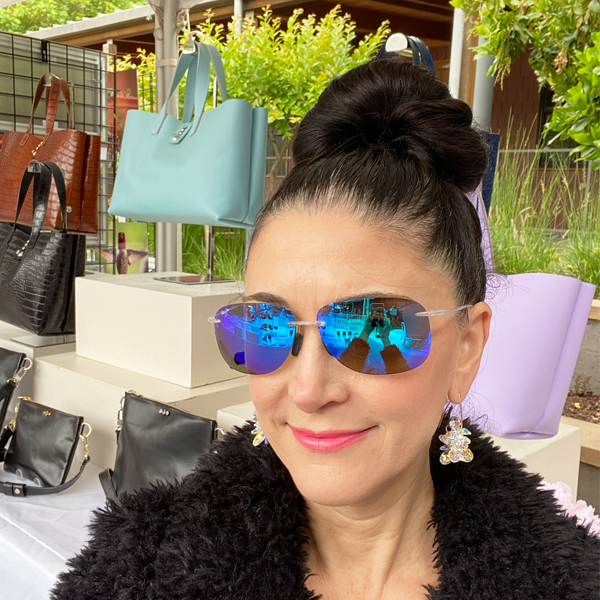
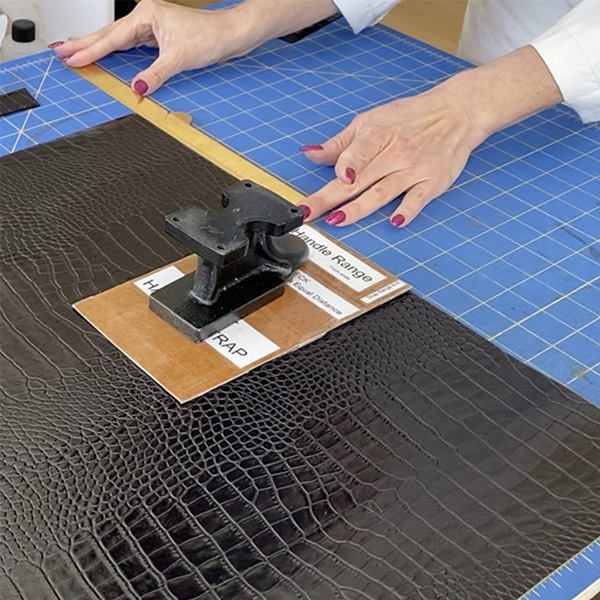
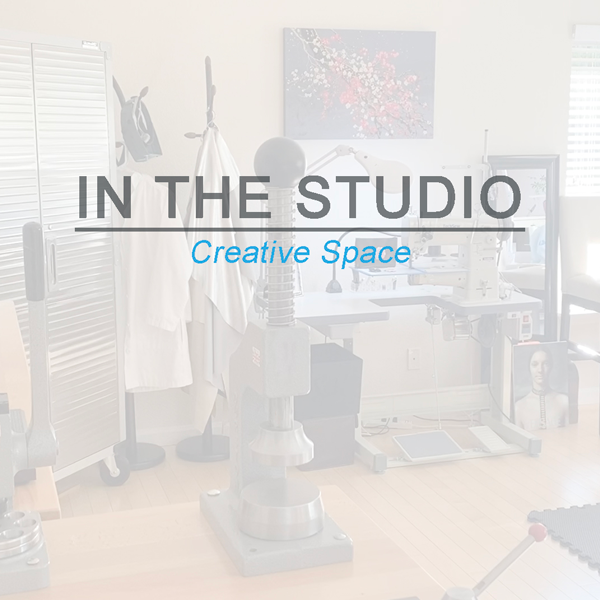
Hello
You probably don’t remember me but I went to high school with you and always thought very positive about you…my name is Mike Walker???
I wanted to drop you a note sending positive vibes and let you know your story really moved me- I wish you all the best as you continue along your journey and hope even more amazing things come your way.
Keep it up…you inspire people.
Lisa,
It’s interesting since I always felt so close to you the times we hung out.. I felt a deep bond with you and I did not know I too was dyslexic at the time.. Thank you for sharing.. I really struggled getting through the UC system and also in the corporate world.. I struggle with Dyslexia and Anxiety every day so I understand…
Leave a comment